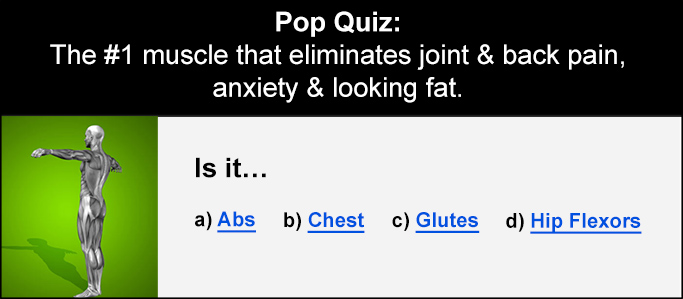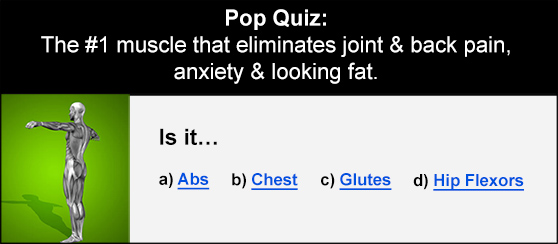
Surgery can be daunting, but recovery afterwards shouldn’t be. Let’s make it a little simpler.
If you’ve had a surgery recently, or you’re heading in soon, then it can be difficult to think about recovery. Inevitably, it’s going to change your life – and making the best recovery possible means better health, less long-term risk, and better quality of life.
Today we’re going to be looking at how a specialised program can help recovery after surgery – and what the hallmarks of good recovery are. Read on if you’re looking to shed a little light on your own surgery recovery…
The first thing you need to consider is that we don’t know you or your medical history. If you’ve been recommended to remain inactive after a surgery then we will always defer to your doctor – they know your situation.
We can’t talk about specific conditions and specific challenges, so take everything in the context of your medical advice. You need to remember that your situation is unique and there’s never a one-size-fits-all approach to recovery.
The nature, severity, and specifics of a surgery will determine when recovery begins and how much activity can be sustained. However, many conditions do benefit from specialised post-surgery programs of exercise.
These are also combined with proper sleep and dietary habits afterwards, but we’ll talk about those later on. First, let’s look at how different types of surgeries respond to different kinds of exercise and why.
The Benefits of a Post-Surgery Exercise Program
Heart Health After Surgery
Cardiac surgery is one of the most common and can include some pretty significant operations – about which many of us are touchy. Once exercise is allowed by your doctor, however, the science is clear: post-operative exercise can help recover cardiorespiratory function.
This is important if you’ve found yourself bed-ridden, but better CR function is a player in recovery itself. This is a great upward spiral to get into; exercise helps recovery, which helps exercise, and so on. These benefits can last up to 5 years and will contribute to better quality of life, too!
Heart conditions are relatively common right now, and the normal function that post-operative exercise offers also reduces risk factors for future events. This is not only a great way to recover, but to improve your wellbeing and health in the long-term.
Muscle Loss and Immobility
During any post-operative period, it can also be important to return to activity just to avoid immobility. The time spent in hospital and mandatory inactivity can contribute to chronic problems like muscle-loss, which starts in the 30s and 40s, or even earlier if we don’t stay active.
The proper maintenance of muscle mass and cardiorespiratory function are contributors to musculoskeletal health. They basically keep your body moving, strong, and keep the joints stable and healthy.
The consequences of inactivity from these problems can vary from diabetes risk to osteoporosis to recurring joint pain. These are the consequences of aging, but better post-operative exercise helps you stave them off, keeping your metabolism, joints, and even your mind healthy.
Mental Health and Surgery: Overlooked But Important
Speaking of the mind, the mental health benefits of post-operative exercise are interesting, experimental, and common sense all at once.
While the research on specific applications is still ongoing, the reality is a simple one: after surgery, it can be easy to feel disempowered. Returning to control over your own body is easier when you have a graduated exercise program to help you feel fit, healthy, and strong.
If you’ve been immobilised for a significant amount of time, returning to being in control of yourself is great for your mental health. This kind of change is a real benefit when you consider that most surgeries contain a significant mental health burden from stress, tedium, and inactivity.
A specialised program of exercise after surgery is tailored to your specific needs and will ensure progress towards where you were pre-surgery, or even better. Proper exercise is a key part of keeping your body and mind healthy, and post-surgery is no exception.

Body Composition: Beyond Weight Change
Keeping your body composition in check can be difficult at the best of times, and after surgery is definitely not the best of times!
Drastic weight gain and weight loss are both possible after surgery due to the stress and adjustments to food availability and eating habits. It’s easy to find your body changing in ways you didn’t intend, and may not want.
Studies tell us that – on top of better heart health and physical performance – specialised programs after surgery improve body composition. This means moving towards a healthier body fat percentage while increasing or sparing muscle mass.
Bodyfat is obviously not healthy at certain levels, while muscle is pretty much always beneficial for health and wellbeing. It is a key player in metabolism, stabilises joints, and ensures you’re able to move independently – something else you might need to develop again post-surgery.
Hallmarks of a Good Specialised Program.
Individualised
This isn’t optional: a good specialised program after surgery needs to be tailored to you and your needs. It has to provide appropriate guidance for the type of surgery you’ve been through and any complications or specifics your case produces.
You want to feel peace of mind about the choice and intensity of exercise, and proper individualised programs do exactly this. It’s important to know a program is for you, not a template, since experiences and needs can vary massively between people!
Graduated
The point is that you’re going to have limited capacity immediately after surgery and the exercise prescription – both in choice of exercise and volume – need to ease up.
Starting light and limited is the way to go, and building over time is important but needs to go at a pace you can sustain. The ‘gradient’ of the progression needs to consider your personal variables and offer this build-up over time.
If a program doesn’t graduate, it will not keep you progressing back to normal function. Plateauing before you’re back to normal can be very frustrating, so a progressive/graduated recovery program is key.
Patient
Patient loading, patient progressions, and a sense of easing back to normal are crucial. The last thing we want after surgery is re-injury or any excessive strain that could limit the recovery process – it’s a fine balance.
Exercise supports recovery (your body heals in response to movement, food, and sleep), but too much can sap your ‘recovery resources’. A specialised program of exercise after surgery needs to gently challenge you, without pushing you too much.
This is why patience is important: it ensures the right pace and keeps progress sustainable while offering the right amount of challenge to drive recovery and performance.

Preventative
A program should offer some form of overall protection for future risk. It should be directed towards properly rehabilitating anything that took damage during surgery, as well as reducing future cardio-metabolic risks and building muscular quality/mass.
These all reduce risks and – in combination – can significantly improve your life. The risk of joint damage, bone density loss, cardiorespiratory problems, and metabolic syndrome are some of the biggest issues in medicine today and this type of program reduces them all – now and into the future.
The point of any exercise is to improve capacity and support the body’s recovery and development. A post-operative program does exactly that, but can also lay the foundation for a lifetime of better regular activity, helping you to return to normal and enabling you to progress even further, over time.
How you use it
As we mentioned before, diet and sleep are absolutely crucial – even more so after surgery.
The proper recovery of your body doesn’t just depend on what you do with it, but how you fuel it, and how you rest. Food and sleep are the big keys for recovery in any area of life – they determine the raw materials your body has for recovery and the environment in which recovery occurs.
A diet with a good calorie content (enough to fuel recovery, without too much restriction), plenty of vitamins and minerals, and protein all help. This means lots of lean proteins and a wide variety of whole plant foods.
Sleep is simple: get as much as possible, and make sure it’s high quality. This means a quiet, cool, dark room and getting 8+ hours a night. This helps you regulate hormonal health and promotes better recovery on a day-to-day and week-by-week basis.
If your exercise program is good, these out-of-training factors do all the work, and it’s when the recovery actually happens!
Final Thoughts
As with any exercise program, a post-surgery program is a way of improving function that is built on acknowledging where you are right now. A good one can produce really positive changes at every level – from health to body composition to mental wellbeing – but it needs to be well-built.
You want to go into your post-surgery recovery with the best possible peace of mind and assurance that you’re making positive change. Properly managing your return to exercise by being pro-active and using a specialised program can help recovery and even play a preventative role for many conditions in future.
There are very few things in life that are as good for you as well-dosed exercise. Recovery after surgery is no exception, it just requires a patient and considerate approach!







